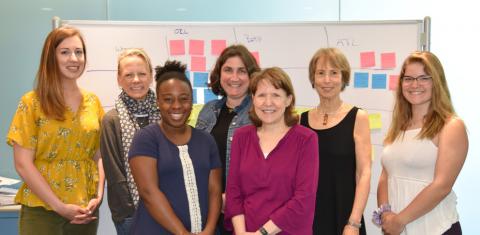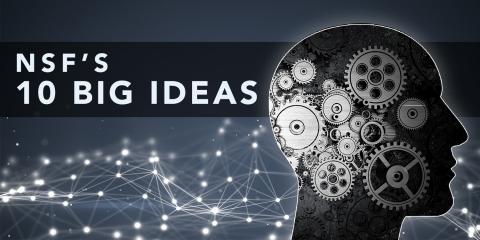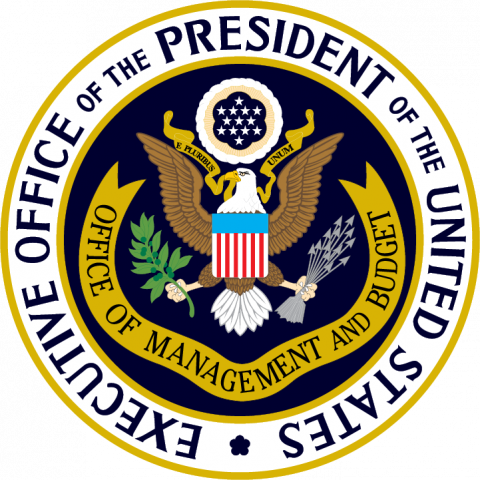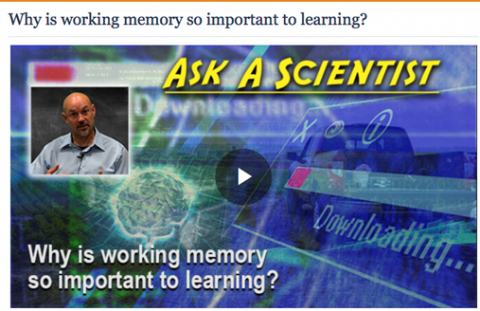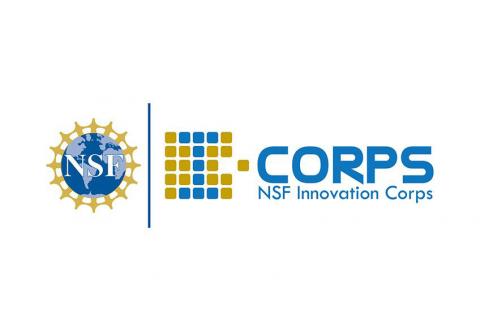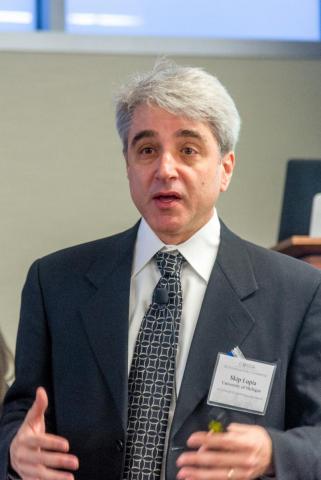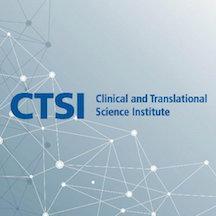25 Years of Service (2) Abortion Rights (1) Activist Groups (1) Addiction (14) ADHD (1) Administrative Data Accelerator (1) Adolescents (2) Aging (19) Agriculture (3) AI (5) AI Hub (2) Air Quality (1) Alaska (4) Alcohol (1) Alzheimer’s Disease (1) Amish (1) Annual Report (2) Anthropology (4) Anxiety (1) Arctic Research (4) Artificial Intelligence (3) Asian Families (2) Associate (1) Asthma (2) Autism (1) Award (24) Babies (2) Big Data (3) Biobehavioral Health (16) Black Families (2) Brain (4) Bullying (1) Business (1) Cancer (1) CCSA (11) Celebration (5) Census (9) Center for Education and Civil Rights (9) Center for Educational Disparities (29) Center for Global Studies (1) Center for Healthy Aging (1) Center for Security Research and Education (4) Center for Social Data Analytics (1) Center for Socially Responsible Artificial Intelligence (4) Center on Education and Civil Rights (2) Child Development (1) Child Health (2) Child Maltreatment (6) Child Maltreatment Solutions Network (5) Child Obesity (6) Child Study Center (1) Chronic Illness (2) Civic Engagement (2) Clearinghouse for Military Family Readiness (6) Climate Change (23) Clinical and Translational Science (6) Cognition (3) Collaborative on Population Aging Disparities (1) College of Agricultural Sciences (12) College of Communications (2) College of Earth and Mineral Sciences (1) College of Education (35) College of Health and Human Development (30) College of Information Sciences and Technology (3) College of Medicine (12) College of Nursing (1) College of the Liberal Arts (35) Communication (5) Communication Arts and Sciences (1) Community (14) Computational and Data Sciences (2) Computational and Spacial Analysis (2) Concussions (1) Conference (10) Consortium on Moral Decision-Making (6) COSSA (13) COVID-19 (27) Criminal Justice (5) Criminal Justice Research Center (7) Criminology (16) CSA (19) CSUA (6) CTSI (43) Data Management (8) Data Resources Hub (1) Data Sources (2) De Jong Lecture (7) Death (3) DEI (3) Democracy (3) Demography (50) Depression (4) Disasters (8) Discrimination (10) Diseases of Despair (1) Dyslexia (1) Economics (4) Edna Bennett Pierce Prevention Research Center (1) Education (20) Education Policy (13) Educational Attainment (4) EIC (8) EIC Podcast (4) Emotion (1) Employment (5) Environment (2) Exercise (1) Expanding Empathy Speaker Series (1) Faculty Fellows (8) Faculty Information (4) Family (8) Family Symposium (20) Fellowship (6) Food Security (4) Foster Care (2) Friends (3) Fullbright Scholars (2) Funding (56) Gender Equality (3) Generational Disadvantages (2) Genetics (2) Geography (4) Geology (1) Geospatial (3) Geroscience and Dementia Prevention Consortium (2) GIS (1) Global Programs (7) Global Warming (5) Government (15) Grief (2) Gun Control (2) Gun Violence (1) Health (7) Health Care (11) Health Disparities (8) Health Equity (8) Health Policy and Administration (4) Hispanic Families (3) Housing (2) Huck (2) Human Development and Family Studies (24) Human Trafficking (1) ICDS (1) IFSE Workshop (3) Immigrants (2) Immigration (30) Impact (3) Indigenous Communities (3) Inequality (2) Inequities (2) Influence (2) Information Technology (4) Innovation (2) Institute for CyberScience (8) Institutes of Energy and the Environment (3) Intentional School Failures (1) Interventions (2) IPDR (1) IRB (2) Job (3) Kinesiology (1) Kinship (3) Labor Exploitation (1) Labor Relations (5) Latino (1) Law (1) Lecture (2) Lerner Center for Public Health Promotion Brief (2) Life Course Exposures (1) Life Expectancy (4) Lloyd Prize (1) Machine Learning (1) Malnutrition (1) Marcellus Shale Natural Gas Development (1) Marijuana (1) McCourtney Institute for Democracy (9) MDI (1) Memory (2) Mental Health (5) Mexico (2) Migration Research (25) Military Families (1) National Security (1) New Methodologies (1) NIH (30) Nominations (1) NSF (20) Nursing (1) Nutrition (1) Nutritional Sciences (1) Obesity (5) Online Aggression (1) Open Access Research (3) Open House (2) OpenMx (1) Opioids (25) OSVPR (10) Overdose (1) PAA (3) PacMAT (1) Parenting (1) Partnership (2) Penn State Cancer Institute (3) Penn State Research (93) Pennsylvania Population Network (6) Pennsylvania Redistricting Advisory Council (1) Philosophy (1) Playing the Archive (2) Podcast (9) POLARIS (3) Policymaking (16) Political Science (10) Politics (12) Population (3) Population Health (6) Population Research (3) Postdoctoral (4) Poverty (1) PPN Brief (2) Pregnancy (3) Preschool (1) Prevention Research Center (4) Prevention Science (6) PRI (100) PRI Affiliate (3) PRI Associate (23) Private Services (1) Professor (1) Promotion Announcement (1) Proposal (7) Protocol (1) Psychology (12) Public Health Sciences (3) Public Policy (10) Public Services (1) Qualtrics (1) QuantDev (4) Race (1) Racial and Ethnic Minorities (5) Racial Disparities (8) Racism (1) RDC (1) Recovery (1) REDCap (1) Refugees (1) Relationships (1) Research (28) Research Evidence (8) Research-to-Policy Collaboration (4) RISE Conference (1) Rock Ethics Institute (3) RPC (1) Rural Communities (12) Rural Health (8) Rural Sociology (14) School (16) School of Public Policy (2) Science Policy (1) Security (2) Seed Funding (29) Segregation (14) Self-control (2) Seminar (7) Siblings (1) SJRC Equity Fellows (1) Sleep (5) SLEIC (1) Smoking (4) Social Data Analytics (2) Social Inequity (2) Social Justice (3) Social Media (4) Social Science (63) Social Stressors (1) Sociology (50) Software (3) Special Education (12) Spring Gathering (3) SRC (1) SSRI (79) SSRI Affiliates (3) SSRI Cofunds (24) SSRI Director (5) SSRI Staff (3) Stress (4) Substance Abuse (14) Substance Use (7) Suicide (2) Support Resources (2) Survey Research Center (1) Symposium (2) Teams (1) Teens (4) Texas (1) Transportation (1) Twitter Data (5) Unemployment Rate (3) University Policy (2) Veterans (2) Violence (1) Visiting Scholar (1) Water (6) We Are (2) Why Social Science? (20) Womens Health (2) Womens Studies (1) Work Conditions (1) Workforce Development (1) Working Groups (2) Workshop (10)
Dear Colleague Letter: The Social and Behavioral Science of Bias, Prejudice and Discrimination
Dear Colleague: Research supported by the U.S. National Science Foundation's (NSF) Social, Behavioral, and Economic Sciences (SBE) directorate has significantly advanced understanding of the science of bias, prejudice, and discrimination. SBE programs have supported transformative projects on many…
News Topics: NSFDiscrimination
Talks to focus on NSF opportunities for researchers
Social science research opportunities available through the National Science Foundation (NSF) will be the subject of two presentations being held on Feb. 22, 3 - 4:30 p.m.; and Feb. 23, 12 – 1 p.m., at The Bennett Pierce Living Center, Room 110 Henderson Building, Penn State. Dr. Erica Hill, a…
Professor awarded NSF grant for research in water security in Kenya
Asher Rosinger, assistant professor of biobehavioral health and anthropology and Ann Hertzler Early Career Professor in Global Health, was recently awarded a National Science Foundation (NSF) grant allowing him to further his research in water and its impact on health and well-being. Rosinger and…
Why Social Science? - Because Social Science Is a Form of Service that Improves Quality of Life for People Around the World
By Arthur Lupia, PhD, Assistant Director for Social, Behavioral & Economic Sciences, National Science Foundation If you are reading these words, chances are you are a social scientist or someone who cares about social science. Either way, I am grateful to you and everyone who devotes…
Penn State’s social sciences top NSF Rankings
The social sciences at Penn State was ranked tenth out of over 900 institutions by the National Science Foundation (NSF) in their NSF Total Research Expenditure Rankings for Fiscal Year 2017. The rankings are based on the total dollars in federal research and development expenditures of each…
$1.2 million NSF grant funds interdisciplinary Child Study Center project
“STEM [science, technology, engineering, and mathematics] skills have not been a priority in early childhood education,” said Evan Pugh University Professor Karen Bierman, director of the Penn State Child Study Center housed in the Department of Psychology in the College of the Liberal Arts. “…
New Effective Date for the Revised NSF Proposal & Award Policies & Procedures Guide
Due to the recent lapse in appropriations, implementation of the revised NSF Proposal & Award Policies & Procedures Guide (PAPPG), (NSF 19-1) was postponed. We are pleased to announce that the revised PAPPG will now be effective for proposals submitted, or due, on or after February 25,…
Social Scientists Encouraged to Explore NSF's Ten Big Ideas Solicitations
Arthur Lupia, Assistant Director for the Social, Behavioral, and Economic Sciences Directorate (SBE) of the National Science Foundation (NSF), is calling on social and behavioral scientists to learn more about, and consider applying for, the funding opportunities associated with the NSF Ten Big…
Resumption of Operations at the National Science Foundation
NSF is open for business! We thank you for your forbearance during this challenging time, and for your support of students, postdocs, faculty, technical and administrative support staff and researchers. It has not been easy for our continuing or new grantees, especially emerging scholars and…
Government shutdown guidance
As you likely know, parts of the U.S. Government shut down on December 22. Three of Penn State’s largest sponsors—NSF, NASA, and USDA--are impacted by the shutdown. Other sponsors impacted by the shutdown include Commerce, Homeland Security, Housing and Urban Development, Interior (including the…
Why is working memory so important to learning?
The National Science Foundation is spotlighting CEDR Director and PRI Affiliate Paul Morgan's recent research on working memory in their "Ask a Scientist" series.
Fall 2018 Scholarly Communications Workshops offered by University Libraries
This November, students, faculty and staff can participate in communications workshops that cover topics such as copyright, publishing, and National Science Foundation public access policy. The workshops, which will take place Nov. 1-15, are coordinated and led by Ana Enriquez, scholarly…
News Topics: NSFCommunication
Penn State response to new NSF and NIH requirements
The National Science Foundation (NSF) and the National Institutes of Health (NIH) have recently taken steps to promote the safety and well-being of students, faculty and staff to maintain productive research and educational environments. NSF has announced that all institutions receiving NSF funds…
2017-18 NSF I-Corps invent teams selected
Twelve entrepreneurial teams from Penn State have been selected to participate in the National Science Foundation I-Corps program. The teams receive up to $3,000, which can be used to attend industry trade shows, visit potential customers, develop prototypes and cover customer discovery expenses.…
Using social media to solve social problems
Social scientist rely on data to study social problems, however data from traditional surveys can be difficult and time consuming to collect, as well as inaccurate since not all factors can be measured well. A National Science Foundation-funded Penn State project will evaluate the accuracy of using…
Arthur Lupia to Lead NSF's Social Science Directorate
The National Science Foundation (NSF) has announced that it has selected Dr. Arthur "Skip" Lupia to serve as the next head of its Social, Behavioral, and Economic Sciences Directorate (SBE), following the expiration of Dr. Fay Lomax Cook's term. Dr. Lupia is currently the Hal R. Varian…
News Topics: NSF
Technology development training program to accept applications in June
Innovations, a technology development training program of Penn State Clinical and Translational Science Institute and the Center for Medical Innovation, will accept applications for the 2018 program from June 1 through June 30. An informational session about the program will be held from…
Ties between oral vocabulary and STEM difficulties to be investigated
Young children with early vocabulary difficulties in turn often have difficulty with reading during the primary grades. Penn State researchers will investigate if these oral vocabulary difficulties also lead to math and sciences difficulties throughout elementary school in a three-year, $1.5…
News Topics: NSFCenter for Educational Disparities
New research to identify what makes conversations supportive
People going through hard times often find assistance by talking about their problems with others, and the support people receive has documented health benefits. However, the quality of support can vary and what happens during conversations can determine whether or not the support is actually…
New project to investigate social media aggression
A recent survey found that 40 percent of American adults and 9 percent of children in grades 6-12 have experienced online harassment on social media in the last year. In light of this trend, the National Science Foundation recently awarded Penn State’s Diane Felmlee, professor of sociology, the…




